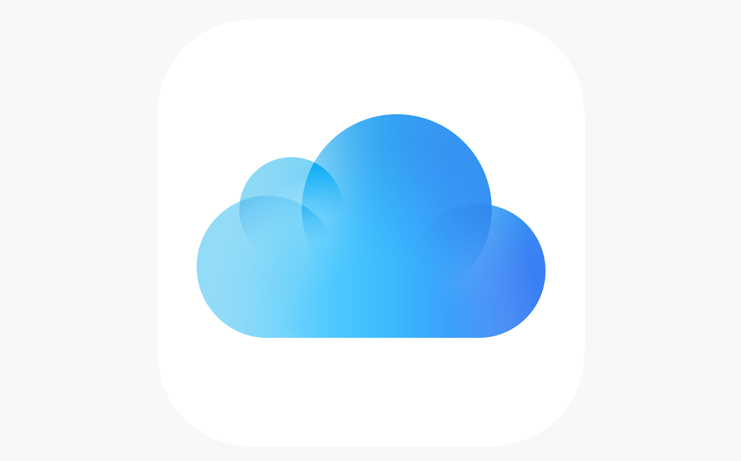What Happens If You Cancel iCloud Storage?
Our iPhones, iPads, and Mac computers hold a substantial quantity of data, ranging from images and movies that preserve priceless moments to vital records for employment and education. You can easily store and access this data on all of your Apple devices with iCloud, Apple's cloud storage offering. What occurs, though, if you want to stop using your iCloud storage plan?
This comprehensive guide will shed light on the consequences of canceling iCloud storage, easing any anxieties you might have about "what happens to my data after canceling iCloud storage" and how to navigate the process smoothly.
Immediate vs. Long-Term Effects of Cancellation
Cancelling your iCloud storage plan doesn't mean instant data loss. However, it does trigger a series of changes in how you can access and manage your iCloud data. Let's break down the immediate and long-term effects of canceling your iCloud storage:
- Access Data After Cancellation: The good news is that you won't lose immediate access to your data after canceling iCloud storage. You can still view and download your photos, videos, documents, and other files stored in iCloud Drive for a certain period. This grace period allows you ample time to make alternative storage arrangements or simply download a copy of your data for safekeeping.
- Retention Period for Cancelled Accounts: While you can still access your data initially, there's a catch. Apple reserves the right to disable your iCloud account after a period of inactivity, typically around 180 days (six months) after downgrading to the free 5GB tier. Once your account is disabled, Apple can delete your data from its servers. This emphasizes the importance of understanding the consequences and taking proactive measures to safeguard your data after canceling iCloud storage.
What Happens To My Data After Cancelling iCloud Storage
Now that we understand the general timeline, let's delve deeper into the specific impact of canceling iCloud storage on your data:
Part 1: Impact on iCloud Photos & Backups
😜Photos & Videos: If you were using iCloud Photos to automatically upload your photos and videos, canceling storage will stop this syncing process. However, the photos and videos already uploaded to iCloud will remain accessible for some time, as explained earlier. It's crucial to download these precious memories before your account becomes disabled to avoid permanent data loss.
😄Device Backups: Similar to photos, your existing device backups stored in iCloud will remain accessible for a while after cancellation. However, you won't be able to create new backups unless you upgrade your storage plan or find alternative backup solutions.
Part 2: Documents and Other Data in iCloud Drive
Documents, notes, and other files stored in iCloud Drive follow the same principle. You'll have some time to access and download these files after canceling, but new uploads won't be possible with limited storage.
Mitigate Data Loss: Strategies After Cancellation
Here are some strategies to ensure a smooth transition and avoid data loss after canceling iCloud storage:
- Downloading a Copy of Your iCloud Data: Apple offers a user-friendly tool to download a copy of all your iCloud data, including photos, videos, documents, contacts, and more. This downloaded archive serves as a personal backup, giving you complete control over your data even after your iCloud account is disabled.
- Transferring Data to Alternative Storage Solutions: The digital landscape offers a variety of cloud storage solutions besides iCloud. Consider exploring options like Google Drive, Dropbox, or Microsoft OneDrive, which might better suit your storage needs and budget. These services also offer tools to transfer your data from iCloud, simplifying the migration process.
By understanding the consequences of canceling iCloud storage and implementing these proactive measures, you can ensure a smooth transition and safeguard your valuable data.
Pro Tip: How to Manage Other Cloud Drives Together
If you're considering canceling your iCloud storage plan, it's important to understand the implications. Canceling your subscription means you'll lose access to any additional storage space you've been using, which could affect the backup of your photos, documents, and other essential files. Without sufficient storage, you may not be able to upload new files, and you could risk losing access to older ones if your storage fills up.
To avoid potential data loss and streamline your cloud management, you can turn to other cloud services. MultCloud is an excellent third-party service that allows you to connect multiple cloud services, enabling you to transfer and manage files seamlessly across platforms. By using MultCloud, you can back up your iCloud data to another service or organize your files more efficiently, ensuring that you never lose access to your important information—regardless of your iCloud storage status.

- Cloud Transfer: MultCloud can transfer files from one cloud service to another directly without downloading and re-uploading.
- Cloud Sync: With MultCloud, you can easily sync two folders between different cloud services in real-time.
- Cloud Backup: You can backup and restore data between different cloud services automatically.
- Instagram Downloader: MultCloud can help you download Instagram videos, photos, reels and stories to local device or remotely upload them to your clouds.
- Email Migration: You can directly back up and save Gmail emails as PDFs to your computer or cloud drive in bulk.
- Manage all cloud accounts in one place: Connect all your clouds to MultCloud and you'll find it so easy to access and manage multiple cloud storage files with a single login.
MultCloud Supports Clouds
-
Google Drive
-
Google Workspace
-
OneDrive
-
OneDrive for Business
-
SharePoint
-
Dropbox
-
Dropbox Business
-
MEGA
-
Google Photos
-
iCloud Photos
-
FTP
-
box
-
box for Business
-
pCloud
-
Baidu
-
Flickr
-
HiDrive
-
Yandex
-
NAS
-
WebDAV
-
MediaFire
-
iCloud Drive
-
WEB.DE
-
Evernote
-
Amazon S3
-
Wasabi
-
ownCloud
-
MySQL
-
Egnyte
-
Putio
-
ADrive
-
SugarSync
-
Backblaze
-
CloudMe
-
MyDrive
-
Cubby
